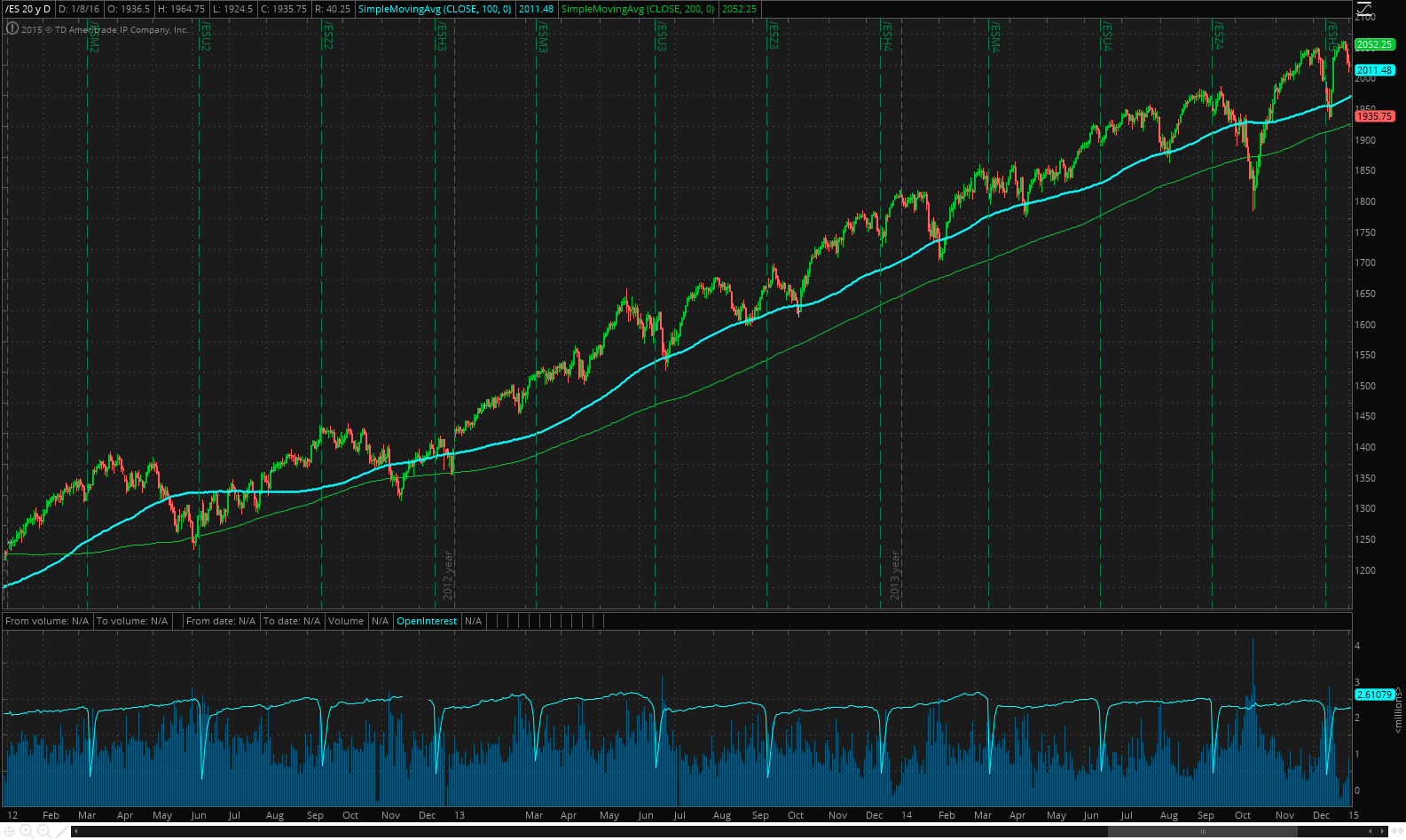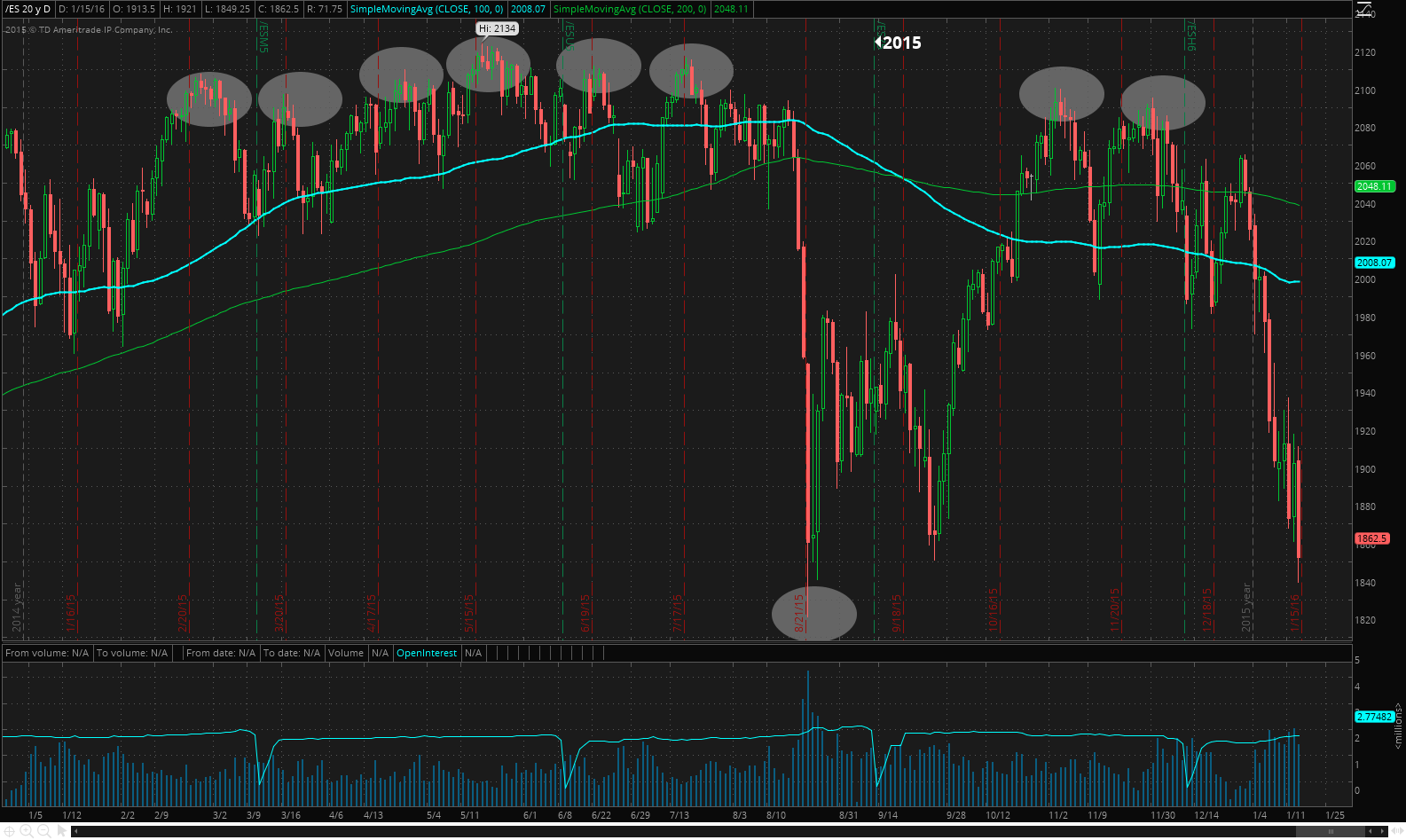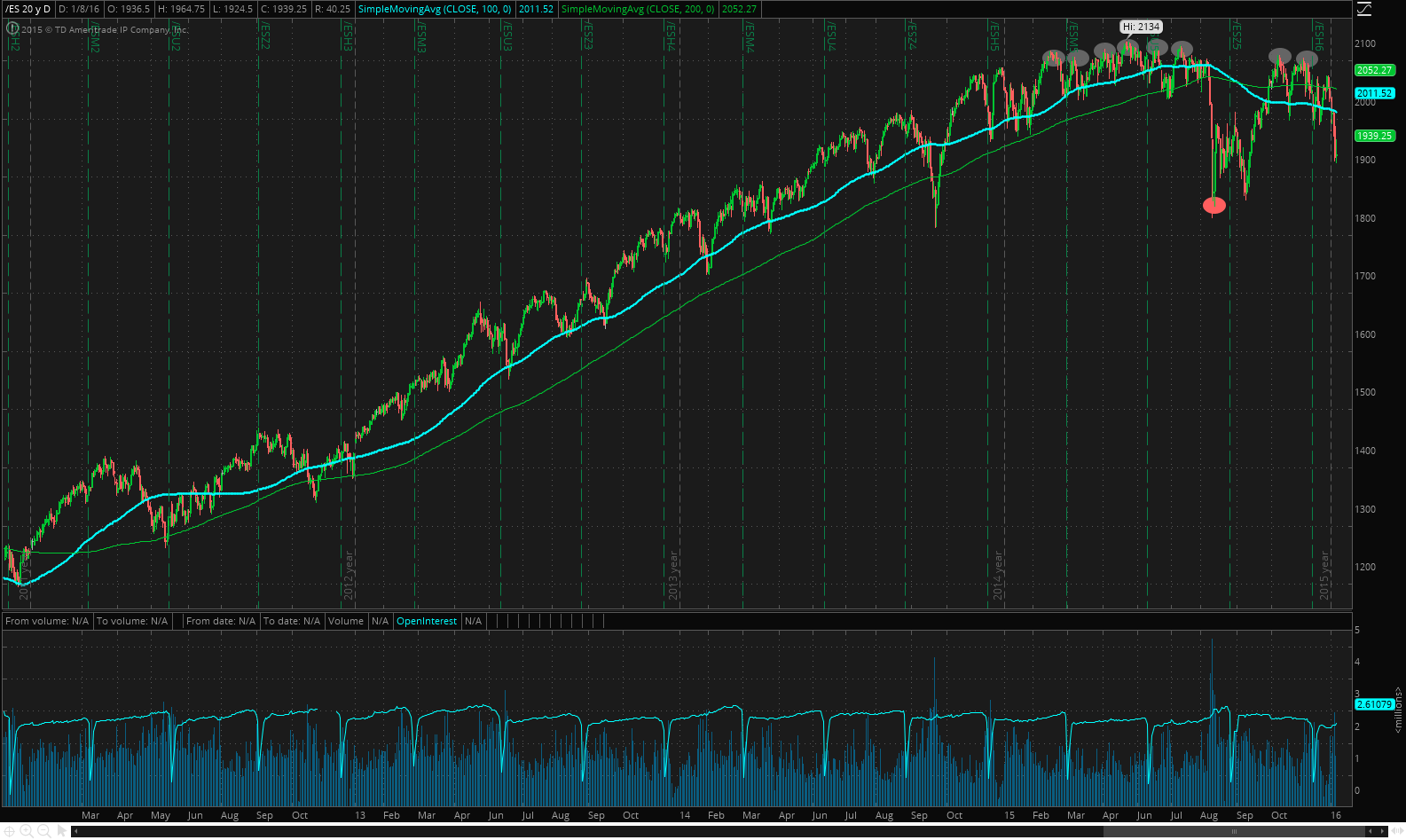They boy who cried “Wolf!”
A shepherd-boy, who watched a flock of sheep near a village, brought out the villagers three or four times by crying out, "Wolf! Wolf!" and when his neighbors came to help him, laughed at them for their pains. The Wolf, however, did truly come at last. The Shepherd-boy, now really alarmed, shouted in an agony of terror: "Pray, do come and help me; the Wolf is killing the sheep"; but no one paid any heed to his cries, nor rendered any assistance. The Wolf, having no cause of fear, at his leisure lacerated or destroyed the whole flock. There is no believing a liar, even when he speaks the truth.
I hate to be that boy, but I see a couple of differences with the fable. First, I am not chortling at anyone’s panic when I have warned of crashes in the past—crashes that did not manifest for two simple reasons I explain below. Second, the fable warns of more than just believing liars. The “moral” was probably added by an “editor” years after Aesop’s death—you see, real literary artists never explain their work, and real literary art is always deeper than the first glance would tell ). The fable also warns the villagers to not dismiss “wolf” cries flippantly. The adults of that community lost their flock, not the boy! And I need not mention that the town should have fired the boy after the first incident.
A number of you, my friends and relatives, read these posts and appreciate them. Others skip them, and still others chide me about my “fearfulness.” But if you will take time to view the charts below and ask yourself, “What happens next?” perhaps you will appreciate my warning. In what follows I hope to convince you that the economy is precariously balanced and the prudent are taking action.
The United States experiences a substantial market crash every seven years. This “phenomenon” is well known by investors who make big plans to profit with short-selling (pros borrowing your stock shares from your brokerage, selling them, and buying the shares back cheaper as prices fall, returning the shares to the broker and pocketing the difference). The markets send warning signals in the Fall and take most of a year to complete their correction. It has been seven years since the last crash. We have had quite a bit of turmoil in late 2015 and things are looking downright dismal as we enter 2016. A full-on crash is due.

If you have kept your savings in mutual funds that track these markets from 2012 through 2014, you have earned gains of 15%, 24% & 19% in those years respectively. Good job! See how bullish the chart at right looks:
Note that the 100 day and 200 day “moving average” lines in the S&P 500 index have risen in parallel nicely without crossing, indicating a stable uptrend. Life has been good. But you know that this “recovery” isn’t what we had all hoped. Companies have continued layoffs, jobs are created in service industries and lost in manufacturing, private income is falling, rents are rising while home ownership rates decline, new car sales are more reliant on easy credit than ever, and the S&P has become increasingly dependent on a handful of key companies that have done well.
The 2015 chart tells a different story.

I have circled eight market tops in the past year. Stocks just cannot seem to move any higher and we are just a few points shy of breaking below the lows of August. Each dip in stock prices throughout the year ends with a sharp reversal (I explain why below). Even the mini-crash in August was stopped and eventually prices were pushed back up toward the highs. But for the year 2015, you lost 1%.
As for 2016 (fair right end of the chart) you are down 7% and over 10% from your eight market tops last year.
Notice the 100 day and 200 day “moving average” lines. They crossed on Sept 18! This is known as the “death cross”. The trend officially changed from bullish to bearish. You can see the topping out and fluctuations in the chart over the past year. I suspect 2016 will be looking a lot more like 2008--and you really just want to forget how bad that chart looked.
Here is the big picture, 4-year S&P chart:

The steady rise is over. The computer algos that trade these markets watch these things closely and are shifting their strategies in response. Wall Street jargon has even changed. Since 2012, the investing mantra has been “BTFD (Buy the F***ing Dip). Every time stocks have pulled back, the trading blogs resound with “BTFD.” Since September, professional traders are saying “STFR” (Sell the F***ing Rally). Now, every time stocks move higher, the pros sell short. These investing pros do not set the trend, they follow it … and the trend has changed, obvious in the overall chart:
So why have previous crashes stopped and reversed for the past 4 years? Because the economy is strong as our fine president has asserted? Because mutual fund investors see the dips as a big buying opportunity? No. The answer is twofold:
- The intervention of the PPT
- The polemics of the MSM.
First, our government, in 1987 intervened in the crashing markets. They became the buyer of last resort to halt the crash. They stopped the plunge in stock prices. What the Reagan administration instituted is called Working Group on Financial Markets, an office whose duty is to intervene in financial markets to prevent crashes (Link). They are now affectionately called the Plunge Protection Team (PPT). The Federal Reserve and our government provide all the money needed to complete their task. In fact, the PPT probably makes money since they control market direction. As the decades have passed since 1987, their methods have become more sophisticated and effective; they have staved off multiple mini-crashes and helped us recover from some large ones. But they cannot do it all alone, they have help.
That help comes from our mainstream media (MSM) who provides the news that will keep investors calm. They immediately pass along leaks from Federal Reserve chairs and FED committee members. Overall, they set the tone of the financial news: “Don’t panic, markets fluctuate.” They frame the news to suit an agenda. Sometimes they respond to big stories with silence. From my view, with a PhD in Rhetoric, much of the financial news today consists of sophistry, propaganda, polemics--and even lies, intended to keep people invested in the right products. Such financial products typically help Wall Street profit while giving us just enough earnings to make it worth our while… during normal times. And “not panicking” during normal times is good advice also. But keep in mind that media analysts work for others. They look beautiful and they read scripts. Those who write the scripts have a vested interest in the general public not panicking and selling all their holdings. Just last week, a Yahoo (O:YHOO) Business news article declared that the recent stock sell off is happening in a “parallel universe.” In other words, “Pay no attention to the markets—all is well, the crash will not affect YOU” Since when are American stocks a parallel universe? This article goes beyond just setting an agenda.
But periodic corrections are good for the markets. They wash out the weak and punish those to take on way too much risk.
Today, even the MSM is forced to recognize the problems in markets, though they still blame it on “global concerns” or “headwinds” suggesting the US is solid. Please do not fall for their sophistry.
I recall the crash in 2008. I was unable to log onto my retirement account to move from a mutual fund into cash—the TIAA-CREF server was overwhelmed and not working; the phone lines were constantly busy. I sat there at my desk totally frustrated and threw in the towel. I lost 30% by the next morning.
Nobody understood the depth of the problem in 2008. The extreme measures used to stabilize markets had not been approved. And nobody had a clue that the FED would implement Quantitative Easing as a “life support” system (Q.E. – the FED printing money and buying all the bad mortgages from banks at full value). Any claims from family brokers, analysts, and the media were completely fabricated and not based on knowledge of the situation. The financial markets had broken and still have not been repaired. Our Treasury secretary Hank Paulson reported that he was having panic attacks as he persuaded Congress to pass TARP to bail out Wall Street. Within weeks, AIG had failed, Fannie & Freddie had been bailed out, and Wall Street was bailed out. THAT, my firend, was no correction.
I have oversimplified the situation here to highlight some realities. Actually, there are lots of wolves out there—a whole pack of them. The ground under our feet has shifted: Laws about finances have been changed Central banks are printing money hand over fist to protect their currencies and keep markets stable. A genuine currency war is in progress (Link). Government and private debt is larger than ever. And bankers have flooded the world with extremely risky financial products that few people understand—financial products that will melt down our system within a few hours if certain price thresholds are breached, like $30 per barrel oil (currently at $31).
If you have a good broker, she has already told you to move out of stocks and into other investments. Many hedge funds have closed down, returning client monies, saying “we can no longer be confident in a good return; the markets have changed and our trading models no longer work.”
Remember the adage: “Buy low and sell high!” Why not sell your hard-earned pensions, retirement funds, and savings out of these bank-controlled and crumbling markets now, selling while they are near all-time highs? The pros are leaving. Why are you staying? The markets are still high. This is a good time to sell. Looking at those charts, can you justify staying in you mutual funds?
But Jerome, what can I invest in that is low?
Take your savings and pay off debt—especially higher interest debt. This year’s markets are losing, whil you could be saving. How about your own home? Why not pay it off with your retirement money, if you are able? In my case, it will put our $920 house payment back in our pocket. Yes we give up a $9000 tax deduction (which translates to a $1400 tax savings). But we save $11,000 per year. A “no brainer!” I’ll take the $11,000 savings over the $1400. People! Do the math. Stop giving the banks so much money in interest payments—the tax deductions come nowhere near making up for it.
What can you own that does not change as markets collapse? What kinds of investments do you understand best? What investment is out there that does not depend on some other company or country to stay solvent? Land? Rental homes? Antiques? Classic collectibles? Art? Cattle? Invest in something you understand and trust.
When you investment depends on another to remain solvent, this is called counterparty risk. Even cash has counterparty risk embedded in the economy of the government that prints it, not to mention stocks, bonds and paper documents. Invest in things that are real, that do not depend on another's financial stability.
I also invest in the ALPS Sprott Gold Miners (N:SGDM) fund with my retirement account. Its price is low right now. The fund specializes in gold and silver mining companies, balancing its holdings each year, weeding out weaker companies and expanding holdings of strong ones. But since it is a ETF fund, based on stocks, it has risk. While its recent track record looks weak as markets have fallen, keep in mind, buy low, sell high.
Actually, gold is probably as low as it will ever be again. You can buy it now cheaper than mines are able to dig it up and refine it. It could go lower, pushed down by fearful investors and bank trading desks that want to keep its price unattractive. But gold will return to its mining cost and higher, and those mining costs will not be getting cheaper. Some very wise and wealthy people are recommending and putting 10-30% of holdings into gold.
But Jerome, you can’t eat gold!
And I say, “You can’t eat stocks & bonds … all must be converted to a common currency.” I can convert a one ounce gold bar to cash in hand in 15 minutes. Ten ounces gets me a check in hand that I take downtown to the bank—45 minutes for cash.
But Jerome, gold is just a pet rock, a barbarous relic.
And I say, “Tell that specious propaganda to the Chinese, Russians, Indonesians, Africans, Indians, Mid- easterners—two thirds of the world’s population.” They save in gold. China has just bought a very large gold vault in London to facilitate their buying from the world’s oldest gold market (Link).
But Jerome, keeping gold at home invites thieves.
And I say, “Don’t keep it at home. There are reputable precious metal storage companies that have international offices and offer the ability to transfer holdings out of the country. Or, don’t tell anyone you have it hidden at home. Don’t breathe a word. Hide your ounces in a steel bucket of bolts, nails, and other pieces of metal junk and stick it in the corner of your garage or workroom. Be creative. Besides, thieves normally look for cash, jewelry, and guns.”
If you are willing to take on a bit more risk and invest in a commodity that has a very large upside potential, buy some silver--coins, bars, doesn't matter. Just make sure it is from a reputable mint or dealer. Avoid sterling jewelry or tableware--its buy price is higher due to artistic value, but its sell price is only 75% of the price of coins and bars.
Remember, buy low, sell high.
But Jerome, everything will be fine; it has always recovered in the past.
And I say, “I hope you are right, I pray you are right, but geo-political events, changes in the markets, and changes in banking laws demonstrate that it really may be different this time. Nobody knows what will happen, but Wall Street and our governments have prepared for the worst. Have you? What is the old saying? Prepare for the worst and hope for the best.”
But Jerome, you are not a licensed securities adviser!
True, and I can give no professional advice. But i do have some common sense to contribute: Buy low, sell high. My suggestions are just there to prompt you to think. Don’t do anything that you are not comfortable doing.
Personally, we are selling some real estate investments while the price is solid, paying off debt, trying to get totally out by summer, buying a little gold, and trying to enjoy life in the meantime. We are not panicking, simply taking reasonable actions to protect ourselves. My eyes are wide open. At best I expect some rather large changes incrementally forced upon us beginning in 2016. At worst, we are staring at another great depression. go ask your grandparents about that! Ask them what they wish they had done to prepare for it. Alas, mine are gone, but it changed them into very practical people.
Remaining in Wall Street managed mutual funds is riskier than it has ever been. If you stay in your mutual funds, the thieves of Wall Street have easy access to your wealth.
So here I am today crying “WOLF!”
There really is one out there. And if the PPT and MSM are not up to the task of saving the markets, we WILL be feeling his bite. Banks will fail. Currencies will inflate Zimbabwe style. Our sheep will be carried off in the night. And since they never repaired the problems that caused the last crash, since there was no washout, since there was no real correction, this time will be even rougher.
Do not panic, but stay awake, be watchful, take precautions.
The wolf is out there circling, slowly and steadily. Your shepherd is being as honest as he can. Don’t be a skeptical villager that loses all.
